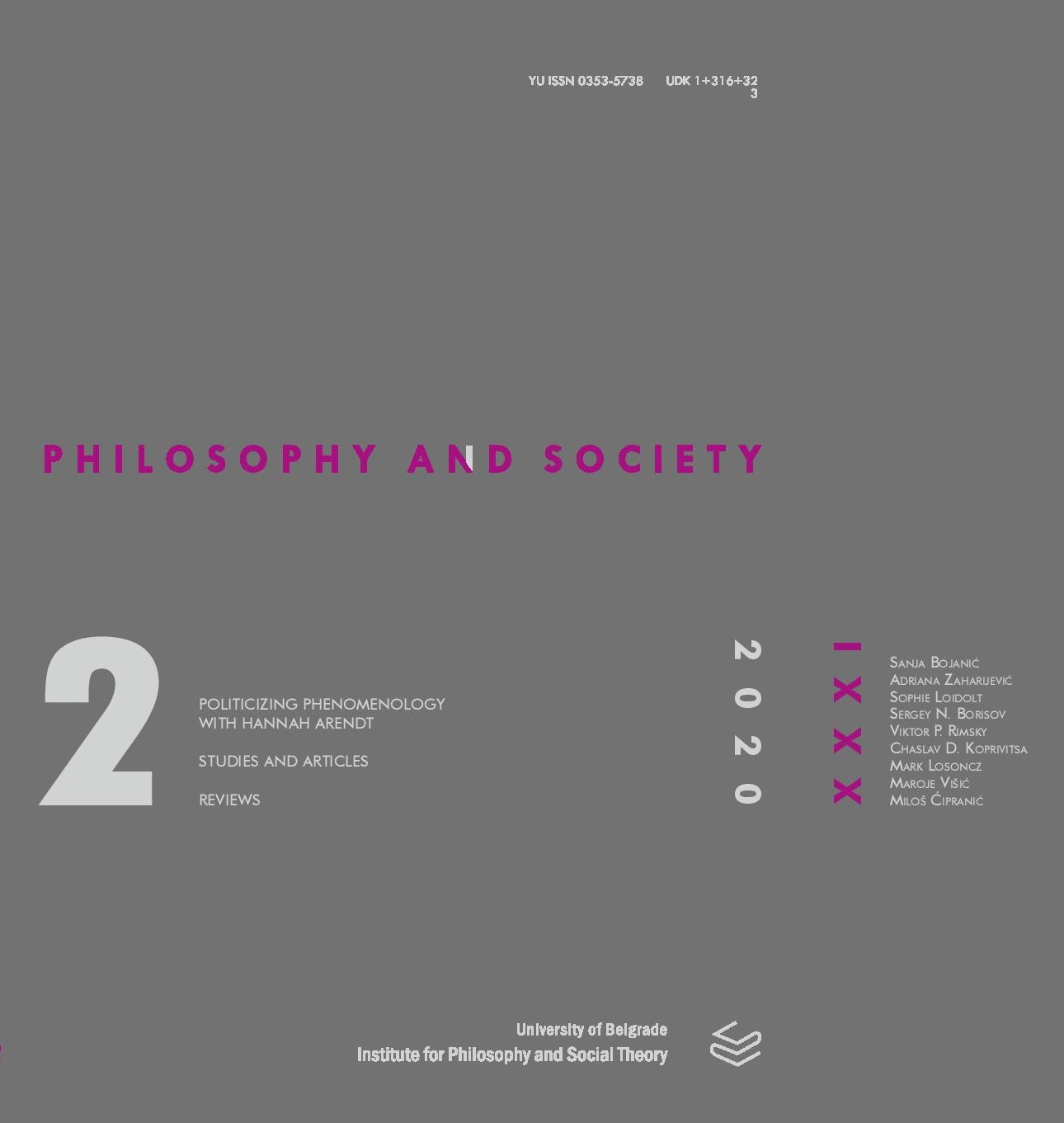HERMENEUTICS OF TRANSLATION AND UNDERSTANDING OF VIOLENCE
HERMENEUTICS OF TRANSLATION AND UNDERSTANDING OF VIOLENCE
Author(s): Viktor P. Rimsky, Sergey N. BorisovSubject(s): Philosophy, Studies in violence and power, Hermeneutics
Published by: Institut za filozofiju i društvenu teoriju
Keywords: hermeneutics; possibility; force; power; reality; action; violence; necessity; coercion; Aristotle; V. Rozanov; I. Ilyin; M. Heidegger
Summary/Abstract: The philosophical definition of violence today is “incomplete” and leaves a “gap” between the phenomenon and the concept. This is due to the fact that the concept of “violence” was/is strangely included in the general philosophical categorial line. In domestic and Western discourse, the problem field of violence contains, above all, political and ethical meanings. The problem is intuitively resolved in its appeal to the concept of “power”, which turns out to be philosophically lost in modern philosophy. Only exceptionally do we find “traces” of this concept in philosophical works. Among them are the works of Aristotle, which need to be freed from modern, distorting interpretations. Thus, in the translations of Aristotle, the Greek δύναμις, used for the traditional transferring the category of possibility, lost its meaning of force (movement, ability, function); in its turn, “force” lost relation to “violence” (βια) and “necessity”. Violence is understood as a kind of necessity, which is associated with the suppression of one’s “own decision”, freedom, something that “prevents desire” and contrary to “common thinking,” as well as the absence of “good”. Violence is presented not only in an ontological sense, but also existentially, as the opposite of “good” and of one’s own “desire”. Force remains in the shadow of “necessity” as “possibility”, “potential energy” and “movement”, and violence loses the opposition that has arisen in an ontological mode.
Journal: Filozofija i društvo
- Issue Year: 31/2020
- Issue No: 2
- Page Range: 165-176
- Page Count: 12
- Language: English

